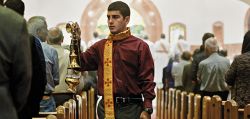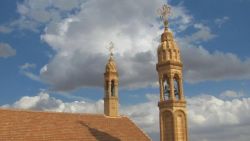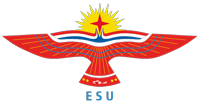February 2013
How to Save a Dying Language

It was a sunny morning in May, and I was in a car with a linguist and a tax preparer trolling the suburbs of Chicago for native speakers of Aramaic, the 3,000-year-old language of Jesus.
The linguist, Geoffrey Khan of the University of Cambridge, was nominally in town to give a speech at Northwestern University, in Evanston. But he had another agenda: Chicago’s northern suburbs are home to tens of thousands of Assyrians, Aramaic-speaking Christians driven from their Middle Eastern homelands by persecution and war. The Windy City is a heady place for one of the world’s foremost scholars of modern Aramaic, a man bent on documenting all of its dialects before the language—once the tongue of empires—follows its last speakers to the grave.
Syriac Orthodox Christians in Turkey: ''This Is Simply Our Home''

In recent years, around 60-100 Syriac Orthodox families have returned from central Europe to Turkey. Encouraged by changes in the political atmosphere, the minority nonetheless faces a host of problems, from the expropriation of land belonging to a monastery, to a ban on special schools and kindergartens, and also a lack of places of worship in Istanbul. By Ekrem Eddy Güzeldere
| Read more … Syriac Orthodox Christians in Turkey: ''This Is Simply Our Home''
Christians Squeezed Out by Violent Struggle in North Syria
MIDYAT, TURKEY — The bright voices of children at play echoed off the ancient walls of Mor Hanonyo last week, breaking centuries of stillness in this 1,600-year-old Syriac Orthodox monastery outside Mardin in southeastern Turkey. Little boys skipped around the monastery courtyard zipped up in quilted winter jackets, while their elders huddled indoors and lamented the violence and mayhem that have forced them to flee their homes in Syria.
| Read more … Christians Squeezed Out by Violent Struggle in North Syria

